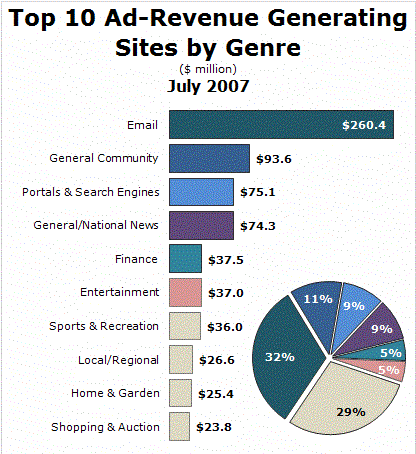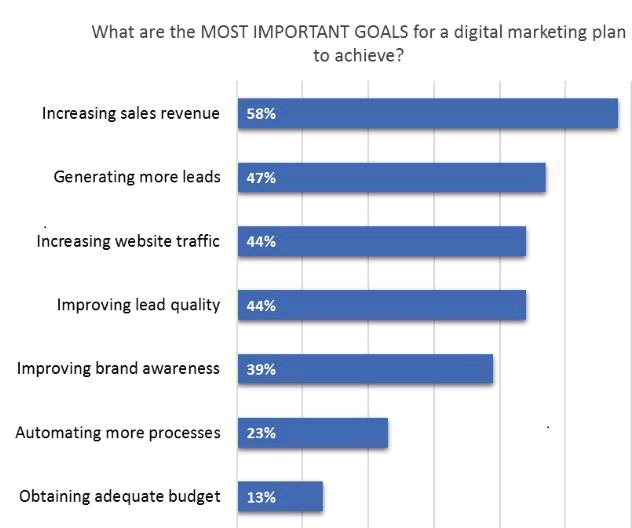Market Analysis, J Bus Hotel Manage Vol: 4 Issue: 1
The Businessperson forever look for amendment, responds to that, and Exploits it as an opportunity
Ashraf Tag-Eldeen,
Professor and Management Consultant Alexandria University, Egypt, E-mail: a_tageldeen@hotmail.com
Keywords: amendment
Global Entrepreneurship Summit 2020
The two-day gathering of world-renowned experts of Entrepreneurship, reconstructive and meetings field is scheduled on July 30-31, 2020 in Rome, Italy. Entrepreneurship 2020 desires at integrating all the renowned business leads, marketing experts, entrepreneurs, young achievers, influencers. The objective of this conference is to gather like-minded coteries to facilitate the flow of ideas, thoughts, suggestions and motivations.
Global Entrepreneurship Summit 2020 provides a platform for e-enthusiasts to debate the promotion of entrepreneurship with a worldwide perspective. The summit can function a meeting for discussion of opportunities and programs aimed towards an equivalent. The summit would see an active participation of leaders from entrepreneurship cells from various sectors across the world. The entrepreneurship cells of world are being brought to one place to learn from the support system present in world universities and learn how to implement the same to effectively promote entrepreneurship in their respective areas.
It’s important to understand who entrepreneurs are and what they wish to accomplish. There are several ways of defining and understanding the entrepreneur. The American Heritage Dictionary defines an entrepreneur as a person who organizes, operates, and assumes risk for a business venture. They design, produce, and generate value through creation and expansion of economic activity by identifying new products, processes, and market. They have specific ideas about why their business fills a need in a region. Entrepreneurs are often creative forces who have the capacity to see change as opportunity, and as such, they adapt well to new environments and challenges they may face.
According to the Kauffman Foundation, “economic gardening is a model that embraces the fundamental idea that entrepreneurs drive economies. It seeks to create jobs by supporting existing companies in a community.” It requires long-term investment and reliance on multiple small operations, but the payoff includes stability and diversification among locally-held interests. The following ideas were derived in part from economic gardening principles.
A challenge in identifying potential entrepreneurs is that many value the fact that they can work from home or be established in areas away from the city centre. It is important to demonstrate why sales and profit might be higher if based out of a downtown location.
Some entrepreneurs will understand the importance to their business of having a physical presence downtown. Others might be amenable to the idea if some assistance or incentives were provided. For those entrepreneurs, who might need some assistance in getting started, an incubator or similar program may be helpful.
How Towns Have Identified Potential Entrepreneurs
For specific examples of how towns have identified local entrepreneurs, see the Small Towns Big Ideas web site from the University of North Carolina – Chapel Hill.
Example: Fairfield, Iowa – Population: 9,500: Fairfield had a successful project combining entrepreneurship and downtown revitalization by focusing on establishing entrepreneurial networks and relationships. It’s now known as the “Silicorn” Valley, but it didn’t get there until it took steps toward identifying their assets and embracing the diversity that came with it. After losing Barrow College, the town turned to long-time assets, like agricultural innovation and broadband communications. In the meantime, a new tenant bought the old campus and started a new school with a focus on Eastern-style meditation. Though this at first created a culture clash for the traditional Upper Midwestern town, Fairfield ended up embracing the new institution. Additionally, a commitment was formed between developers and entrepreneurs to creating a strong sense of civic duty and pride, resulting in a successful mentoring program for entrepreneurs. It’s resulted in a town dedicated to growing jobs and committed to each other.
Entrepreneur’s Self-Evaluation and Opportunity Screening Guides
Less of a concern for downtown directors, but of great importance to emerging entrepreneurs, is the opportunity for self-evaluation and analysis during the first stages of starting a business. The following are tools and resources that aim to help new businesses identify their strengths and assess the feasibility of their new business venture.
Providing Supportive Infrastructure
Economic gardening works best when a commitment is made to invest in the business environment to ensure a healthy start for entrepreneurs. It’s important to remember that the relationship here is mutual: you’re investing in their entrepreneurial talent and they’re investing in your downtown.
Incubators
Business incubators are facilities that often provide a physical space, support, resources, and business services for emerging small business owners. Entrepreneurs are provided assistance with tasks such as writing and maintaining a business plan, marketing and accounting. As reported in the 2004 Main Street News article “Incubators: Nurturing Small Business Growth,” a 1997 US Dept. of Commerce study reported that 87% of incubator graduates remained in business. In contrast, the Small Business Administration reports that 80% of small businesses fail within their first five years.

The Small Business Administration lists three things that incubator facilities typically have:
1. Location of the entrepreneurs in a common space at a rent that is below average for the area or an exceptional value for the services provided;
2. Shared equipment or services to lower the businesses’ initial capital needs; and
3. Management assistance and access to professional expertise.
Other incubators are virtual and do not require a “bricks and mortar” location.
The chosen entrepreneurs agree to be members for specified period of time, often going through various trainings and/or being paired with an established, successful entrepreneur in the community to receive mentoring.
An incubator can take on many forms. Some focus on specific industries. For instance, if a downtown would like to be a magnet for culinary-related businesses, an incubator with other food service tenants might be an excellent fit. Incubators can also serve as a test to see what businesses might be viable in your downtown district. Some incubators function very simply, merely as an office for the entrepreneurs, while others might
Making Connections
Some places develop mentoring programs, where emerging entrepreneurs are paired with successful ones, such as the program in Fairfield, Iowa. It is argued by some that most of what entrepreneurs learn is from their peers or their own experience, not economic development professionals, books or classrooms.
Formal and informal places can be used to connect entrepreneurs. In Fairfield, the library, coffee shops, restaurants and bookstores have become convenient and low cost meeting places. Restaurants in particular have become business networking places at lunchtime.
Inventor & Entrepreneur (I&E) Networks are clubs that provide a place for entrepreneurs with an opportunity to discuss their business with like-minded people. These networks might provide emerging entrepreneurs with opportunities for growth through trainings on a variety of topics. They provide a place for innovation, confidential discussion, and support. Participants in these I&E clubs reported the top three benefits of participating were networking, education, and gaining access to information.
Creating a Community Climate Supportive of Entrepreneurs
Creating a community climate that is amenable to entrepreneurs helps a community at large understand its assets and assist economic development. Often communities have little say in the fiscal and monetary decisions in the same way that their town officials and elected leaders do. In Energizing Entrepreneurs, researchers with the Rural Policy Research Institute’s Centre for Rural Entrepreneurship identified characteristics of attitudes that truly support entrepreneurs and their initiatives.
1. Awareness of the potential role of entrepreneurs in economic development and recognizing the challenges new business owners face, including the possibility of failure. “Fair weather support for entrepreneurs will not create an enduring supportive entrepreneurial environment.”
2. A culture that realizes that the failure or success of a venture could lead to a shake-up of social harmony. An entrepreneur who is too successful might find themselves outside the mainstream attitudes, while a failure could result in rapid loss of support from former allies.
3. Anonymity in smaller communities can be hard to come by. That said, when an entrepreneur tries a new technique or something unusual in the eyes of the greater community, it can be difficult to maintain support when the idea and the person behind it are often viewed as one and the same. Entrepreneurs need space in their community to let their creativity work, and the ability to wear hats as both a resident and an entrepreneur.
4. Quality of life is as much a concern to entrepreneurs as it is to other residents. After all, entrepreneurs also have families and are just as concerned about having good schools and other amenities. A community that offers high quality amenities might find that their entrepreneurial retention rate is better than places that don’t emphasize quality of life.

Using Your Market Analysis
Your market analysis may provide ideas on how to build connections among entrepreneurs and the community:
• Feedback from the business owner’s survey. The survey asks questions related to opportunities (or lack of opportunities) for entrepreneurs to meet other business and community leaders;
• Responses from focus group sessions or interviews. Findings might provide insight on improving your community’s attitude toward business development and relationships among business operators within the community; and
• Findings from a peer city comparison. Other communities can offers examples of networking events and places that bring the business community together.
Appendix – Community Entrepreneurship
Community Entrepreneurship is a method of providing support and funding for a business idea that benefits or is the idea of the entire community. When a void exists in the marketplace, the market is too slow to act on its own, or the risks are too high for just one investor, community entrepreneurship spreads the responsibility and ownership to multiple parties. Community entrepreneurship initiatives typically have the same goals as other businesses: identify a market need and generate a profit.
• Cooperatives are democratic organizations where members have an equal vote; they typically function as not-for-profit organizations. Broadly speaking, there are four types:
• Consumer (retail) Cooperatives
• Worker Cooperatives
• Purchasing Cooperatives (organizations that provide marketing and finance to member businesses and act as a wholesaler)
• Producer Cooperatives (individual producers come together to gain access to larger wholesale and retail markets)
• Community-Owned Corporations – This is a for profit operation where shareholders invest in a business model with membership open to anyone willing to buy a share. Community-owned corporations use democratic voting processes to make decisions.
• Small Ownership Groups – Very similar to community-owned businesses, only that there are fewer owners who are likely to be involved in day-to-day operations.
• Investment Funds – An investment fund serves well in a situation where individuals have interest in supporting an idea, but have no interest in helping to run and manage the business. Their main goal is to provide venture capital, equity, or low-interest loans to entrepreneurs with whom they have trust in success.
Although the on top of summary could indicate that small is going on over the past decade in Entrepreneurship research, it is in fact not difficult to find examples of progress when we look instead for exemplary research employing different levels of analysis. In this section we will comment briefly on some such developments. In doing therefore we tend to draw upon a broad vary of entrepreneurship literature revealed throughout the last decade. Obviously, the data, interests and preferences of the current authors can bias such an exercise.
The selection of studies is admittedly not based on a thorough review of all entrepreneurship research. Neither is it based on stringent application of objective criteria of what constitutes ‘good’ research. However, without any aspirations to claim completeness we have focused on studies judged to contribute to knowledge development through comprehensiveness, comparison, accumulation, frontier-pushing and/or well-designed empirical theory-testing. Research focusing on the individual need not necessarily be psychological. Given the early emphasis on entrepreneurs’ psyche it is somewhat ironic that socio-demographic variables seem to discriminate better between business founders and other groups
This Global Entrepreneurship Summit 2020 runs on the theme “Building and Sustaining International Relationships”, which concedes that Entrepreneurship 2020 will act as a platform for exploring the novelties in the field of small and medium-size businesses. In this gathering, the breakthroughs related to Entrepreneurship are about to be deliberated and grasped of the knowledge is to be shared.
Entrepreneurship 2020 welcomes: advertising companies, business delegates, business institutions, entrepreneurship companies, business schools, business management faculty, professionals, entrepreneurship training institutes, industries, product development and marketing professionals, healthcare industries, and manufacturing companies.
We genuinely welcome you to Italy and hoping that Entrepreneurship Summit 2020 will inspire you and will result in new collaborations and friendships!
-
Global Enterpreneurship Summit
ROME, ITALY
 Spanish
Spanish  Chinese
Chinese  Russian
Russian  German
German  French
French  Japanese
Japanese  Portuguese
Portuguese  Hindi
Hindi 